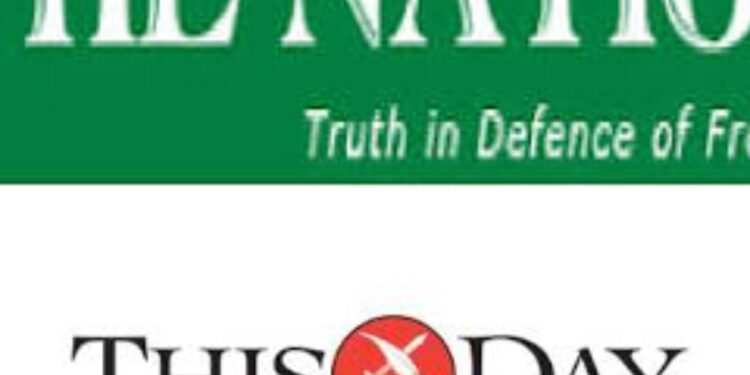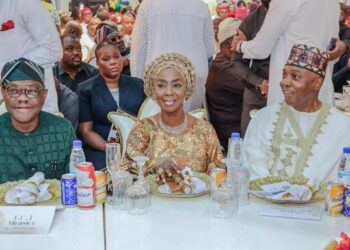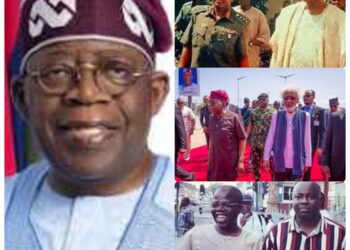Journalism is a noble profession built on the pillars of truth, fairness, accuracy, and balance. Journalists are often referred to as the watchdogs of society, tasked with disseminating credible information to the public through various media platforms – print, radio, television, and online. However, recent trends within Nigeria’s media landscape raise concerns about the integrity of these principles, particularly with regard to the apparent disconnect between print and electronic media.
As a journalist with years of experience in print journalism, I have traveled to countries such as Ghana, Kenya, and South Africa, where I observed remarkable practices in media collaboration. In these countries, it is common for radio and television stations to dedicate specific time slots to newspaper reviews, ensuring citizens are informed about the most pressing issues highlighted by the print media. This symbiotic relationship enhances civic engagement, helping people make informed decisions while fostering a stronger connection between the government, the media, and the public.
In Nigeria, this complementary approach to journalism has long been part of the profession’s ethos. Yet, recent developments involving two prominent Nigerian media houses – TVC News and Arise News Television – seem to undermine this tradition. These media outlets, owned by influential individuals, are inexplicably excluding each other’s newspapers from their daily reviews.
TVC News, owned by President Bola Ahmed Tinubu, runs a popular program titled Your View, which airs every weekday at 9 a.m. and includes a newspaper review segment. However, ThisDay newspaper, owned by Prince Nduka Obaigbena, is conspicuously absent from their reviews. Similarly, Arise News Television, owned by Obaigbena, excludes The Nation newspaper – a publication under Tinubu’s ownership – from its newspaper review at 7:30 a.m. each weekday.
These omissions may seem trivial on the surface, but they have significant implications for the integrity of journalism in Nigeria. Both The Nation and ThisDay carry exclusive stories that are often pivotal to understanding the socio-political climate of the country. By refusing to review each other’s newspapers, these media houses are depriving their viewers of critical information, ultimately limiting their ability to stay fully informed.
This practice not only shortchanges Nigerians but also sets a poor example for aspiring journalists. Students of journalism and mass communication, who are taught the principles of balanced reporting, are left to question the credibility of a profession that appears divided along personal or corporate interests. The fallout between TVC News and Arise News Television casts a shadow over the integrity of Nigerian journalism, creating an impression of competition rather than collaboration in serving the public good.
What is particularly baffling is the presence of respected journalists in both media houses. Arise News Television boasts seasoned professionals like Dr. Reuben Abati and Rufai Oseni, whose insightful analysis has earned them widespread respect. Similarly, TVC News is home to veteran journalists such as Babajide Otitoju and Victoria Ajayi, who are celebrated for their balanced commentary. It is disappointing that such experienced professionals have not publicly addressed this growing rift or taken steps to rectify the situation.
This drama raises an important question: Is this a battle for journalistic supremacy or a reflection of deeper issues within Nigeria’s media ecosystem? Regardless of the answer, it is clear that this practice does not align with the principles of ethical journalism. Both media houses must recognize that their duty is to serve the Nigerian public by ensuring access to comprehensive and balanced information.
The credibility of journalism as a profession depends on the ability of its practitioners to rise above personal or corporate interests. The management of TVC News and Arise News Television must demonstrate leadership by fostering collaboration rather than competition. Newspaper reviews should be inclusive, reflecting the diversity of voices and opinions that define Nigerian journalism.
As stakeholders in this profession, we must hold these media houses accountable. If they fail to prioritize the public’s right to information, they risk undermining the trust and respect they have worked so hard to build. Moreover, the broader Nigerian media industry must recognize that the credibility of journalism hinges on collaboration, fairness, and balance. Anything less is a disservice to the public and a betrayal of the profession’s core values.
Let this serve as a call to action for journalists, media owners, and regulatory bodies. The time has come to bridge the divide and restore the integrity of Nigerian journalism. If we fail to do so, we risk leaving the next generation of journalists with a profession tainted by bias and division – a legacy none of us should be proud to leave behind.
Ibrahim Taofeek Kegbegbe
Head of Media and Publicity Secretary
Bullion Records
Editor-in-chief The Merit Newspaper
08024248696
ibrahimtaofeekkegbegbe@gmail.com
















